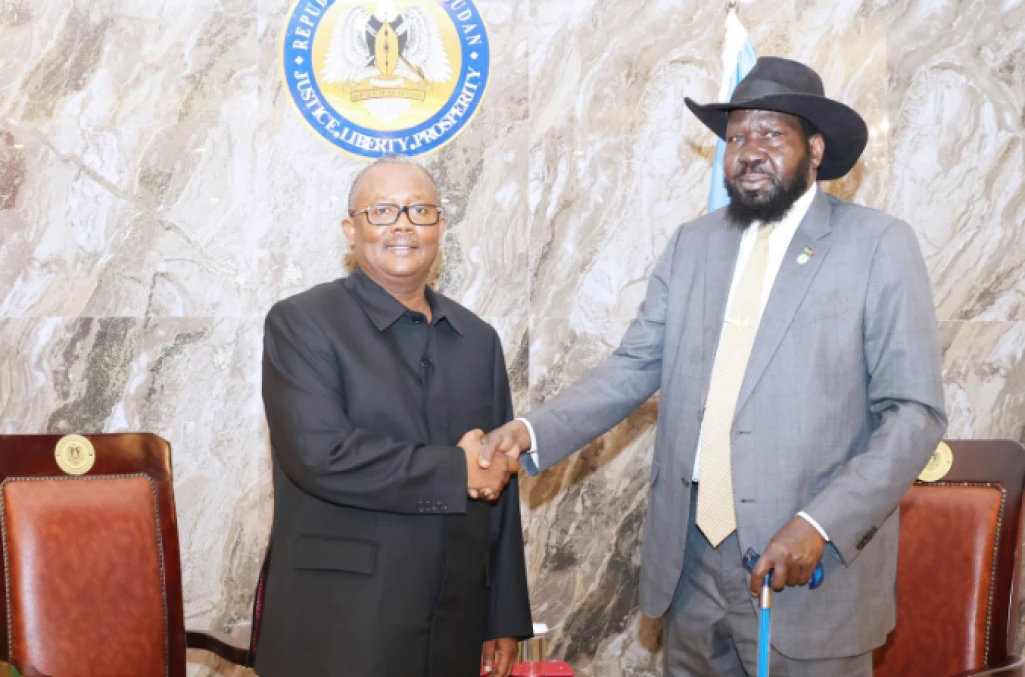
The President
of Guinea-Bissau has pledged to support regional peace in South Sudan.
Umaro Sissoco
Embaló delivered his statements upon his arrival in South Sudan on Thursday.
The leader of
the West African nation was received by President Salva Kiir at the
presidential palace.
“During the
meeting, President Umaro expressed Guinea Bissau’s readiness to support the
South Sudanese peace process,” said Lily Adhieu, presidential press secretary,
in a statement posted on the official Facebook page.
Currently, South Sudan is dealing with a lot of problems within its own country, mostly violence between communities and political disputes. The Kiir government and the holdout groups are trying to find a solution in Nairobi, the city of Kenya.
The statement,
however, did not specify the manner in which Embaló's government will
contribute to the peace process.
“The visit marks a critical moment as the two leaders seek to initiate and formalize diplomatic relations and explore areas of mutual interest between Juba and Bissau,” Adhieu continued.
She added
that the two leaders discussed bilateral engagements in various fields such as
trade, cultural exchange programs, and cooperative efforts in strengthening
regional peace.
In South
Sudan, outbreaks of civil war in 2013 and 2016, persistent subnational
violence, weak management of public resources, and political contestation have
undermined post-independence development gains and intensified existing
humanitarian needs, World Bank reports.
Fragility,
economic stagnation, and instability continue to impact the East African
country more than a decade after gaining independence in July 2011. Poverty is
ubiquitous, exacerbated by conflict, displacement, and external shocks.
On the other
hand, Guinea-Bissau's GDP per capita and Human Development Index are among the lowest in the world.
More than
two-thirds of the population, about 1.8 million people, lives below the poverty
line after declaring independence in September 1973.
Its economy
depends mainly on agriculture; fish, cashew nuts, and ground nuts are its major
exports.